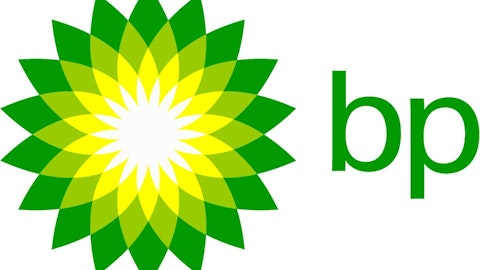Since the beginning of the year the price of oil resumed its upward trend. Will this rally continue? Or will oil prices come down soon? What could explain the recent rise in oil prices? Let’s examine the recent developments in the oil market.
During February (up to date), the price of oil inched down by 0.5%; United States Oil Fund LP (ETF) (NYSEARCA:USO), by 0.3%. Despite this modest fall, since the beginning of the year prices of oil increased by 5.6%. United States Oil also rose by 6%.

This relation should be taken with a grain of salt, but it does suggest that if the price of oil will continue to rise, assuming all things being equal, the value of Chevron will augment (based on DCF valuation). During 2012, this company’s revenues fell by 5%. Part of the drop in revenues is related to the decline in the price of oil during the year by 7%. If the price of oil will remain higher than in 2012, it could pressure up Chevron’s stock price. Let’s analyze the recent developments in the oil market.
During January and February, the U.S. Petroleum and oil stockpiles fell by 7.2 million barrels; it reached 1,791 million barrels by Feb. 8. The current oil stockpiles are 40.3 million barrels above the storage during the same week in 2012. The recent drop in storage suggests the oil market is tightening up. Moreover, the linear correlation between the shifts in stockpiles and oil prices is mid-strong and negative at -0.2. This relation could mean if oil stockpiles will continue to decline, oil prices may further rise.
From the supply standpoint, according the recent EIA report, the U.S oil imports fell during January and February by almost 2%; as of Feb. 8 it was also 11.5% lower than the same week in 2012.
Refinery inputs also sharply declined during the month by 5.9% and were 0.4% lower than last year. The drop in imports and refinery inputs could have contributed to the recent rally in oil prices during recent weeks. The weekly changes in imports and refinery inputs tend to be negatively correlated with oil prices. Therefore, if imports and refinery inputs will continue to fall, this could suggest oil prices will further rise.
Despite the recent drop in refinery inputs, major refineries stocks such as Valero Energy Corporation (NYSE:VLO) and Marathon Petroleum Corp (NYSE:MPC) have spiked since the beginning of the year — shares of Valero spiked by 38.4% (year-to-date); shares of Marathon Petroleum, by 20.2%.
Oil price’s rise may have helped pull up the value of these companies. Further, if oil prices will remain higher than in previous years, it could augment these companies’ operating profits and free cash flow.
These companies’ free cash flow remained positive during the first nine months of 2012: Marathon’s free cash flow (FCF) reached $1.4 billion; Valero Energy’s FCF was $2.5 billion. This allowed these companies to improve their financial situation by repaying debt or by buying back stocks. Valero Energy paid back during 2012 nearly $2.2 billion of its debt. Marathon repurchased $800 million of its stocks. Therefore, a rise in oil prices and refineries input could keep these companies on this path.
OPEC
left its total production unchanged in recent months despite the tensions between Iran and the West. On the other hand, non-OPEC countries’ production slightly declined during January. If the production won’t increase in non-OPEC countries this could also contribute to the rise in oil prices.
Demand
From the demand standpoint, the US economy has contracted in the last quarter of 2012: the GDP shrunk by 0.1%. Furthermore, the EU economy has also contracted during the fourth quarter of 2012 by 0.6%. The leading economies in the EU have also contracted: Germany’s GDP fell by 0.6%; France’s GDP, by 0.3%.
These figures suggest the demand for oil in these economies has contracted in the last quarter of 2012. Despite these figures, the IEA estimates the global oil demand is expected to rise by a higher rate than it had been estimated in previous months. This could be due to a colder winter than last year and the rise in demand in Asia, including China and Japan.
My guess is that the price of oil will remain around the 90s and perhaps even reach the 100s in the weeks to follow. But if the projected demand will continue to fall, this will eventually lead to a pull back in the price of oil. I suspect that as the year progresses, the price of oil will eventfully come down to the 80s price range.
For further reading:
Will Exxon Continue To Trade Up?
The article Will Oil Come Down in 2013? originally appeared on Fool.com and is written by Lior Cohen.
Copyright © 1995 – 2013 The Motley Fool, LLC. All rights reserved. The Motley Fool has a disclosure policy.




